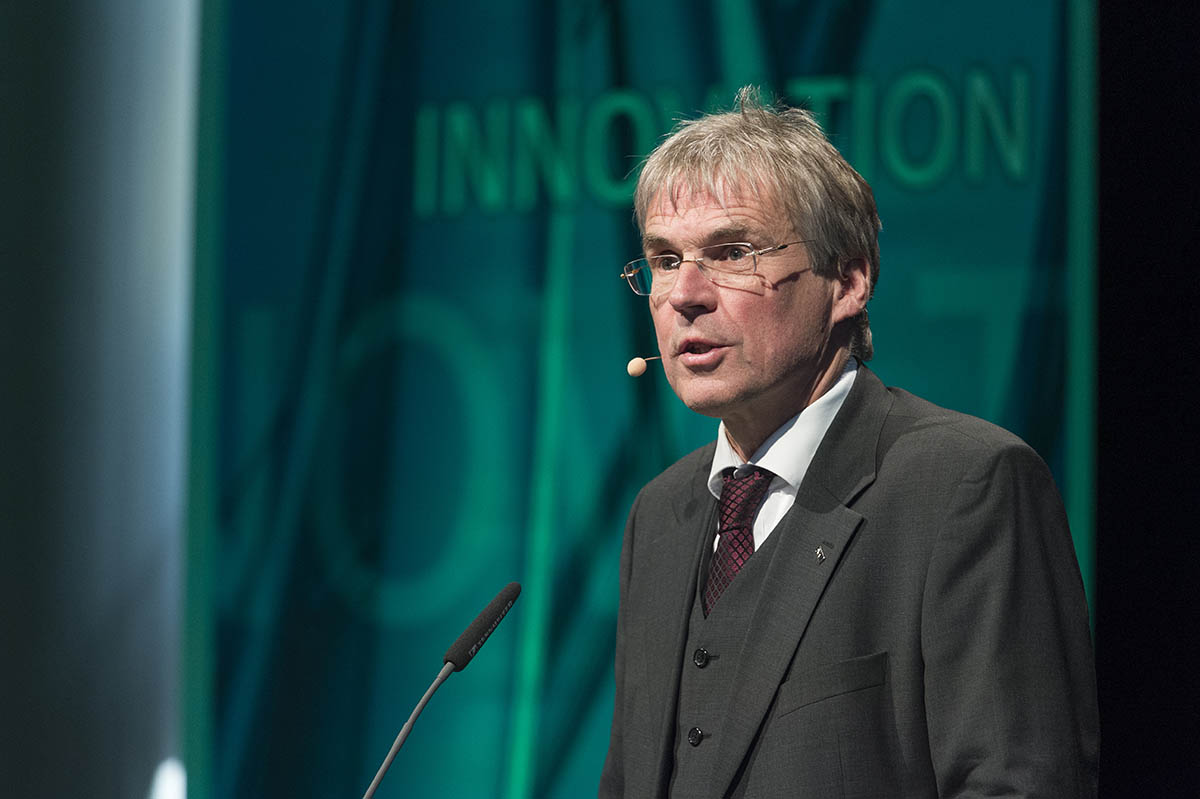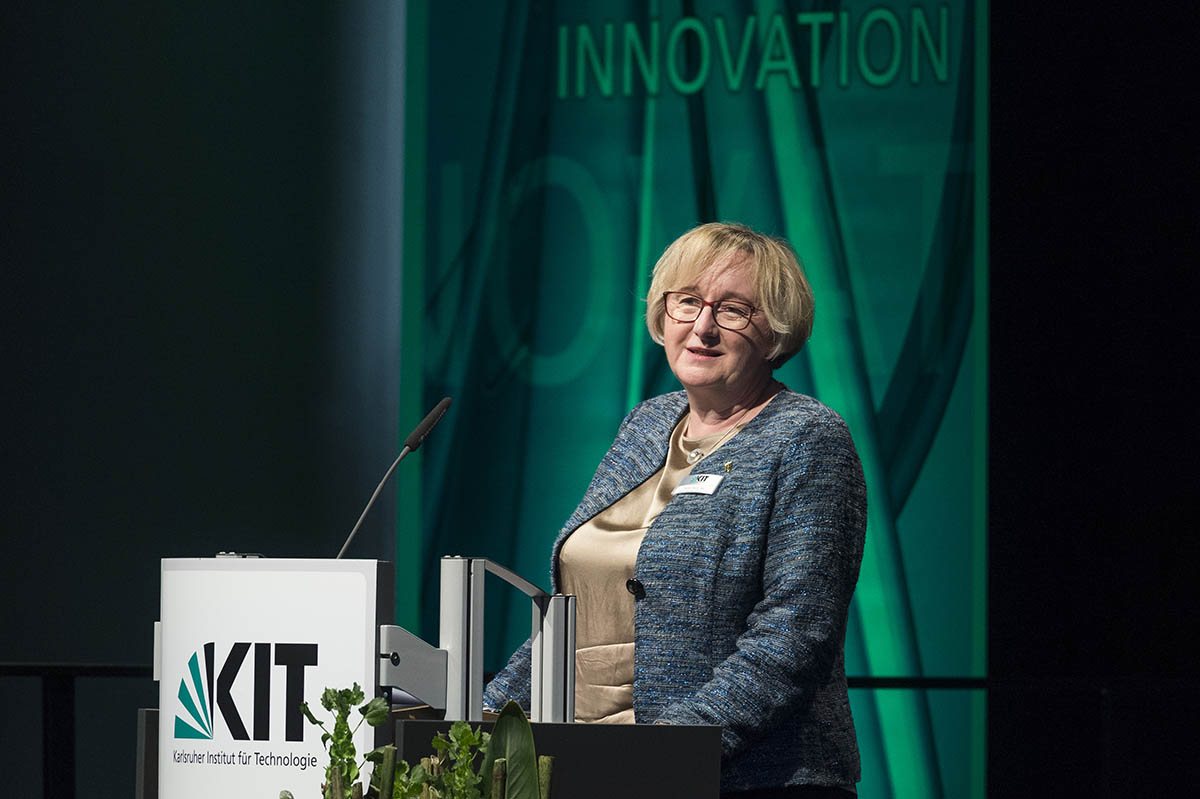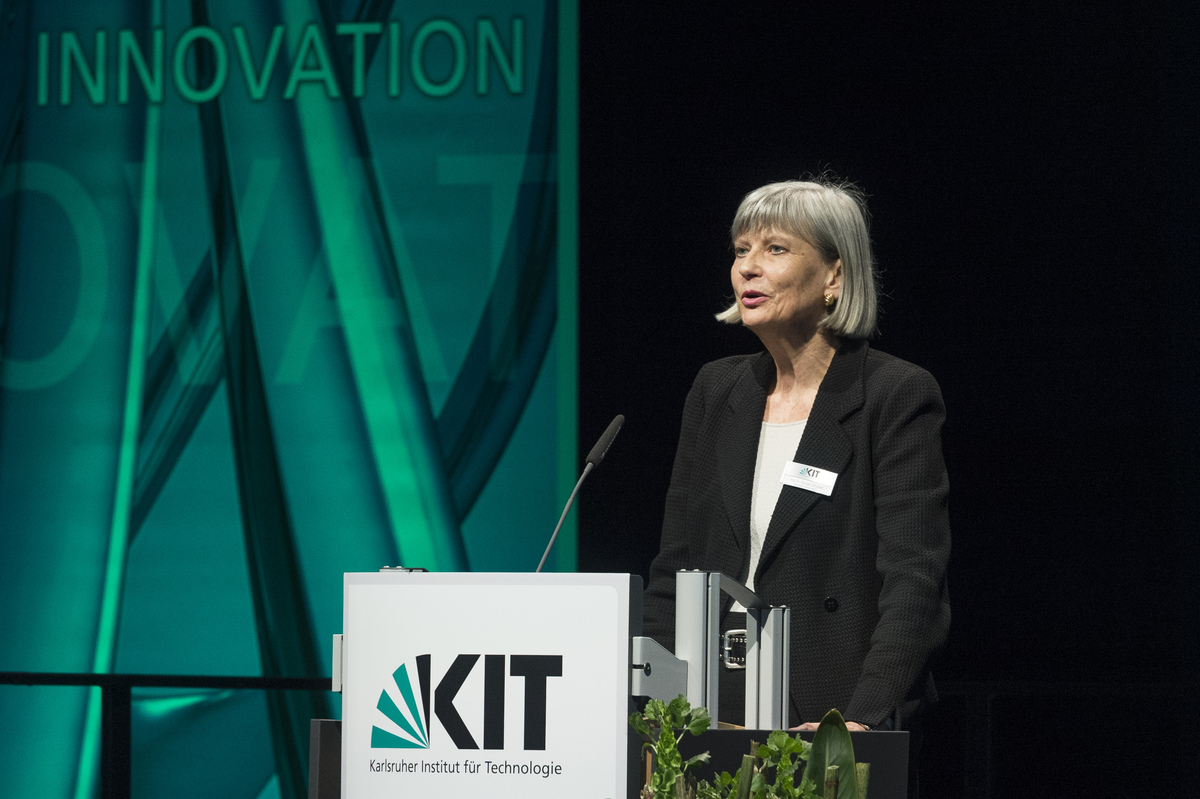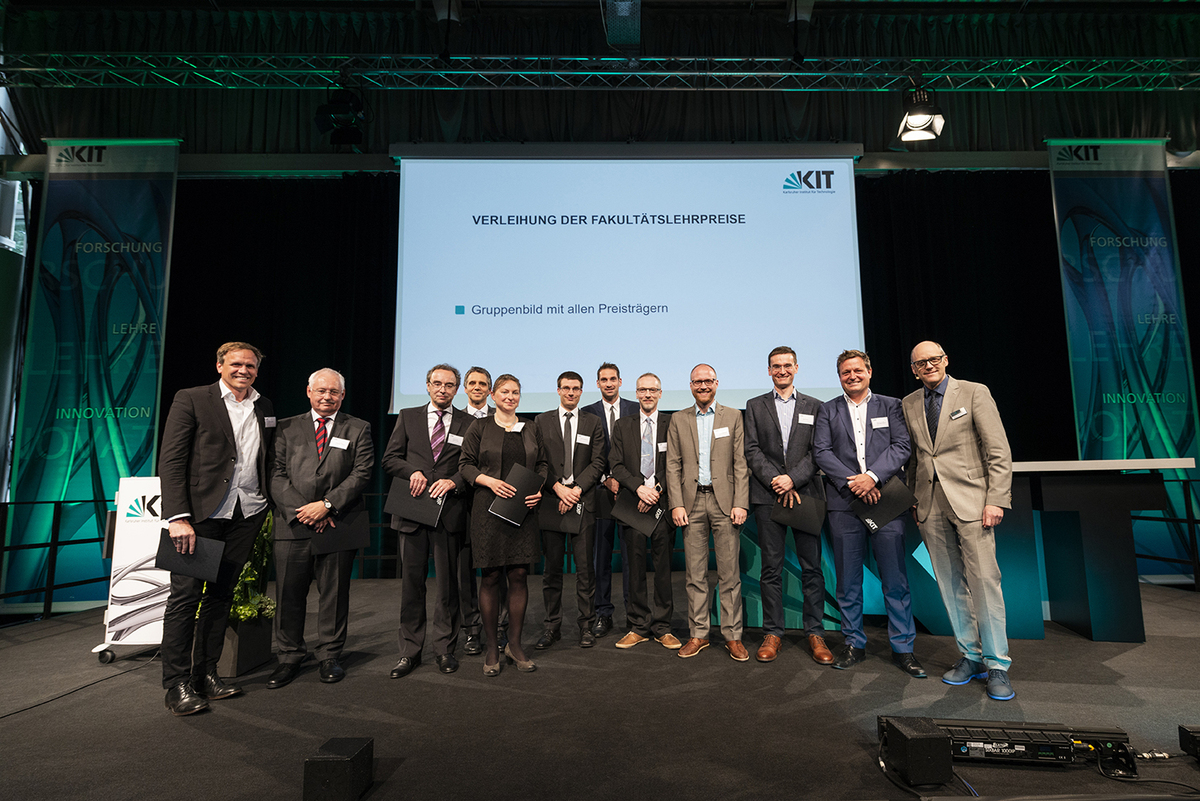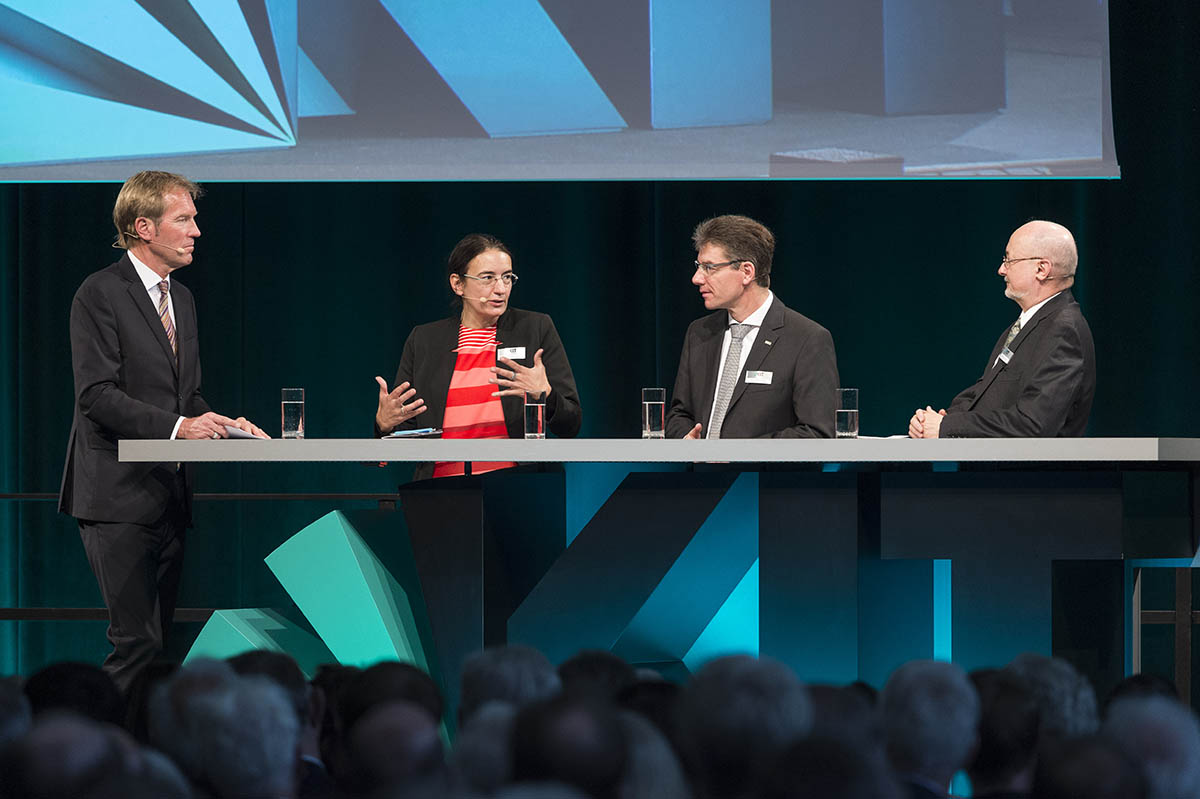Fascination AI – A Tool that Changes the World

Artificial intelligence (AI) and derived technologies and applications will determine our future daily life, our work environment, and our society much more than they do today. Learning systems offer great potentials for shaping our information society, but also for safe and environmentally friendly mobility. Visions and questions relating to AI, also in the context of digitalization, were in the focus of the 2019 Annual Celebration of Karlsruhe Institute of Technology (KIT). Here, also Theresia Bauer, Baden-Württemberg Minister of Science, Research, and the Arts, spoke to the audience.
“Artificial intelligence is developing at high speed, it has an enormous change potential which probably will be even revolutionary,” said the President of KIT, Professor Holger Hanselka, at the Annual Celebration. He emphasized the importance of using AI for the benefit of society. “At KIT, we see our responsibility not only in pushing the development of new technologies, but also in assessing their impacts and considering their risks from the very beginning. Doing this, we want to support in particular decision-makers in politics, economy, and society.”
“Artificial intelligence is a key technology and, as such, it will change our world. It will change our life in many areas and – despite all misgivings – make it better,” emphasized Minister Theresia Bauer. Research is the most important basis and indispensable prerequisite for this. “We need inventive talents and creative ideas, combined with profound expert knowledge and insights into the different application environments in industry and science. KIT offers best prerequisites for this. As ‘The Research University in the Helmholtz Association,’ it has an unmistakable profile and excellently combines academic education with latest research. In this environment, scientifically consolidated responses to the big challenges of our time can be developed. The KIT is well prepared to further advance in the era of digitalization and to pave the way with scientific excellence.”
The Executive Board of KIT grants department teaching awards to acknowledge research- and application-oriented teaching modules as well as courses at the KIT departments, which are characterized by innovative teaching and learning approaches, interdisciplinarity, and up-to-dateness of the knowledge conveyed. At the Annual Celebration, Professor Alexander Wanner, Vice-President for Higher Education and Academic Affairs of KIT, handed over the awards to twelve lecturers of KIT. The award is endowed with a prize money of EUR 10.000 each and is granted annually to teachers working at the eleven KIT departments.
Important events of and milestones reached by KIT in research, academic education, and innovation in the past year are presented by the slide show of the Annual Celebration.
Full text: press release 067/2019
Photos: Markus Breig, Robert Fuge / KIT
le-sf, 17.05.2019

